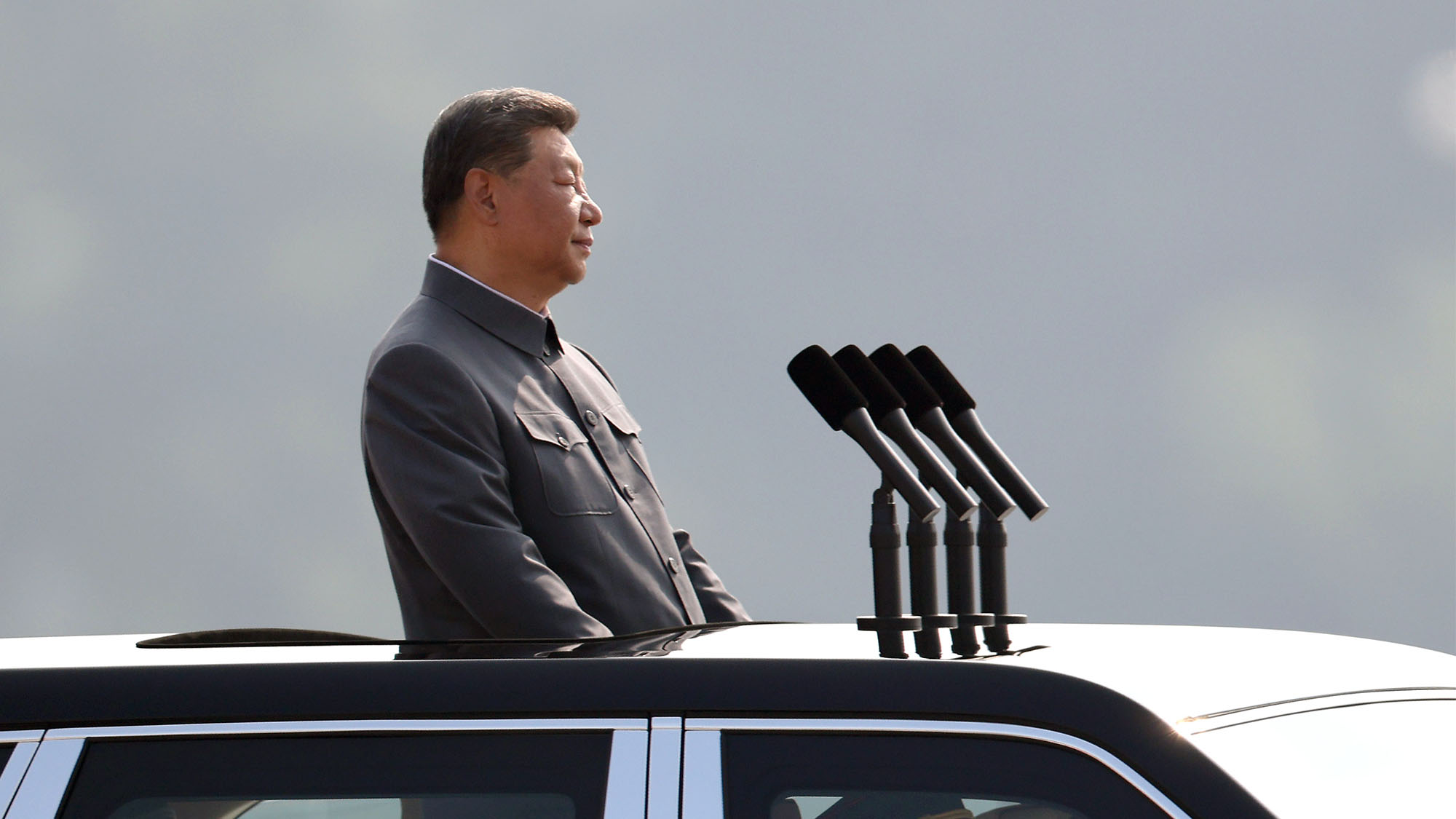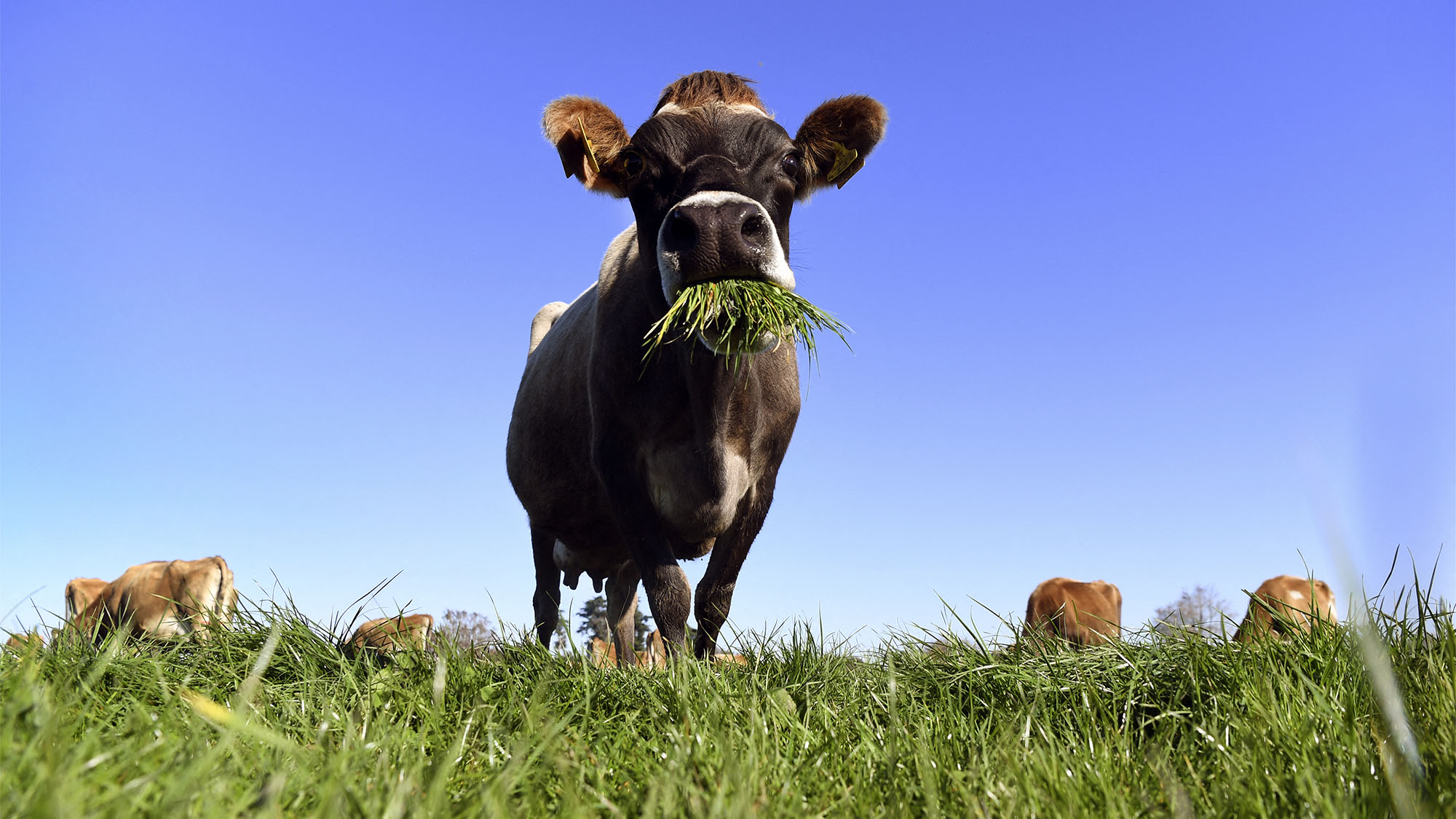The Week Unwrapped: Trans chess, goalkeepers and twitching
Why is women’s chess bringing in a trans ban? Why was Nike so reluctant to sell Mary Earps’s shirt?
A free daily email with the biggest news stories of the day – and the best features from TheWeek.com
You are now subscribed
Your newsletter sign-up was successful
Olly Mann and The Week delve behind the headlines and debate what really matters from the past seven days. With Emma Smith, Julia O’Driscoll and Harriet Marsden.
You can subscribe to The Week Unwrapped wherever you get your podcasts:
In this week’s episode, we discuss:
The Week
Escape your echo chamber. Get the facts behind the news, plus analysis from multiple perspectives.

Sign up for The Week's Free Newsletters
From our morning news briefing to a weekly Good News Newsletter, get the best of The Week delivered directly to your inbox.
From our morning news briefing to a weekly Good News Newsletter, get the best of The Week delivered directly to your inbox.
Trans chess ban
Chess’s world governing body FIDE has banned trans women from competing in female events for two years while it conducts an investigation into their participation. The decision has led to a backlash in many quarters, including some of its own affiliate organisations. National chess bodies in both the UK and US have said they will ignore the ban. What is FIDE trying to accomplish, and will it have to back down?
Replica kit
Nike, manufacturer of the official England football kits, came under fire this week for its decision not to produce a replica of goalkeeper Mary Earps’s kit. Fans made their own version of the sports star’s shirt to wear during Sunday’s World Cup final, and a petition calling on the brand to release the shirt for public sale was signed by more than 150,000 people. Nike has now secured limited numbers of the shirt to go one sale — but why was it so reluctant to do so in the first place?
Birdwatching
More and more of us are turning our eyes to the skies, as the popularity of birdwatching continues to grow. Interest in twitching increased during the pandemic, as cities went quiet and birdsong rang out. Now new apps, social media networks and technologies are attracting a younger demographic. Aficionados say birdwatching is cheap, inclusive and beneficial to mental health. But could it also help conservation efforts?
A free daily email with the biggest news stories of the day – and the best features from TheWeek.com
-
 The ‘ravenous’ demand for Cornish minerals
The ‘ravenous’ demand for Cornish mineralsUnder the Radar Growing need for critical minerals to power tech has intensified ‘appetite’ for lithium, which could be a ‘huge boon’ for local economy
-
 Why are election experts taking Trump’s midterm threats seriously?
Why are election experts taking Trump’s midterm threats seriously?IN THE SPOTLIGHT As the president muses about polling place deployments and a centralized electoral system aimed at one-party control, lawmakers are taking this administration at its word
-
 ‘Restaurateurs have become millionaires’
‘Restaurateurs have become millionaires’Instant Opinion Opinion, comment and editorials of the day
-
 The Week Unwrapped: Have televised confessions quelled protests in Iran?
The Week Unwrapped: Have televised confessions quelled protests in Iran?Podcast Plus, why has Elon Musk turned from Mars to the Moon? And will the BBC prove to be a puzzles champ?
-
 The Week Unwrapped: Why are there so many Russian ships in the Channel?
The Week Unwrapped: Why are there so many Russian ships in the Channel?Podcast Plus, what does a ‘feminist’ approach to cancer involve? And who is Mickey’s new boss?
-
 The Week Unwrapped: Why is China clearing out its generals?
The Week Unwrapped: Why is China clearing out its generals?Podcast Plus, can the Conservatives win back the centre? And what’s gone wrong with Britain’s hearing aids?
-
 The Week Unwrapped: What can we learn from a tool-wielding cow?
The Week Unwrapped: What can we learn from a tool-wielding cow?Podcast Plus, have we reached ‘peak billionaire’? When should troops disobey their superiors?
-
 The Week Unwrapped: Will Uganda’s pop-star politician prevail?
The Week Unwrapped: Will Uganda’s pop-star politician prevail?Podcast Plus, is dodgy data undermining medical research? And what does a new app reveal about Chinese society?
-
 The Week Unwrapped: Is Elon Musk’s AI tool a platform for abuse?
The Week Unwrapped: Is Elon Musk’s AI tool a platform for abuse?Podcast Plus can Mumsnet predict who will be the next PM? And who is still watching Avatar sequels?
-
 The Week Unwrapped: What’s the cost of PFAs?
The Week Unwrapped: What’s the cost of PFAs?Podcast Plus why is George Osborne joining OpenAI? And has universal basic income finally come of age?
-
 The Week Unwrapped: what’s scuppering Bulgaria’s Euro dream?
The Week Unwrapped: what’s scuppering Bulgaria’s Euro dream?Podcast Plus has Syria changed, a year on from its revolution? And why are humans (mostly) monogamous?